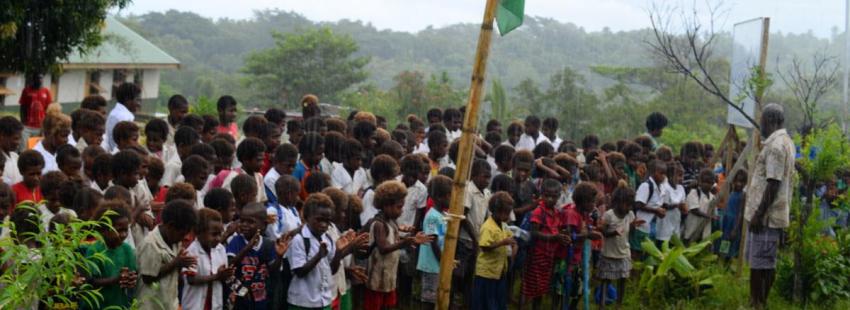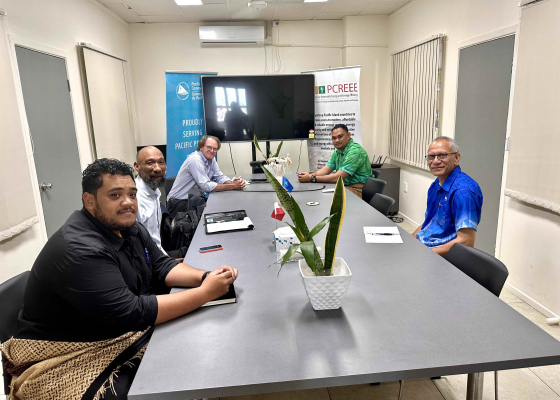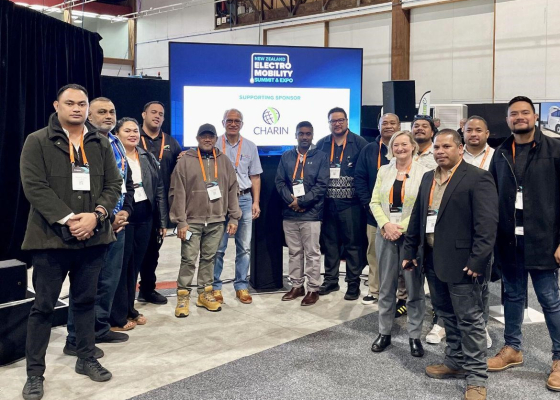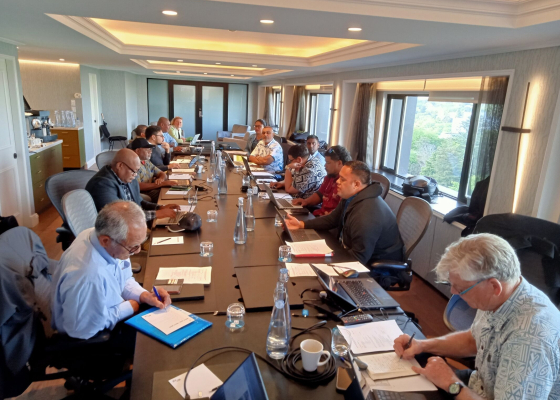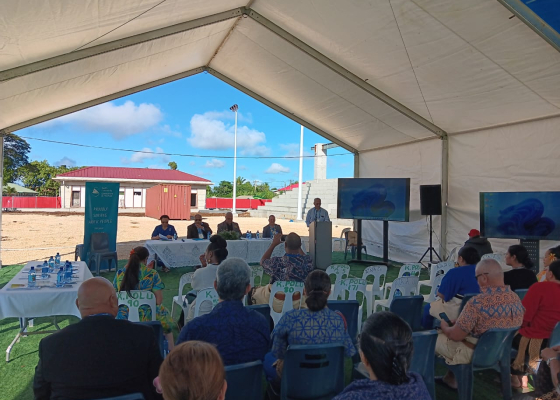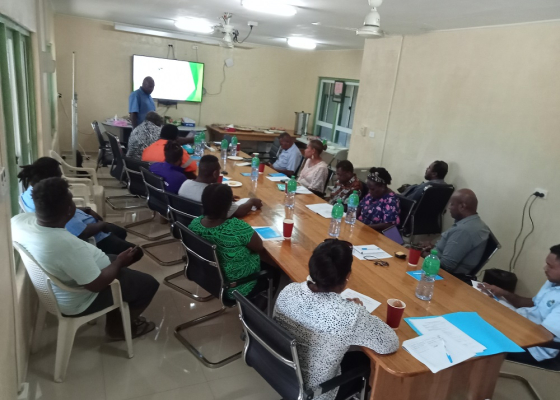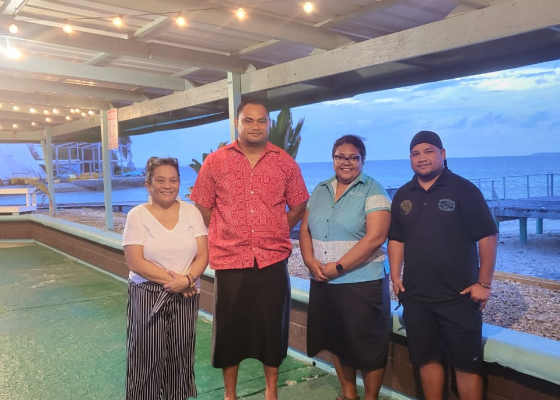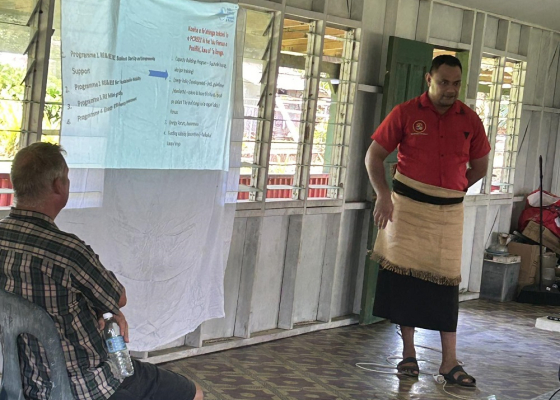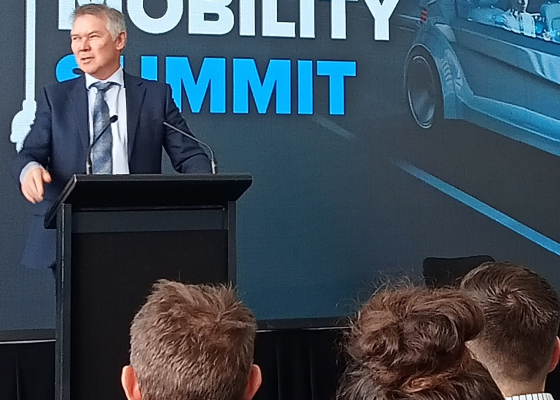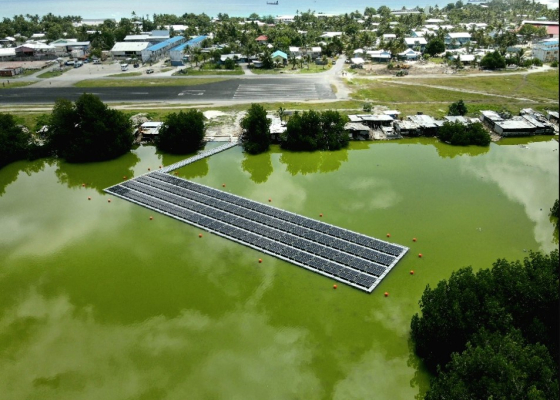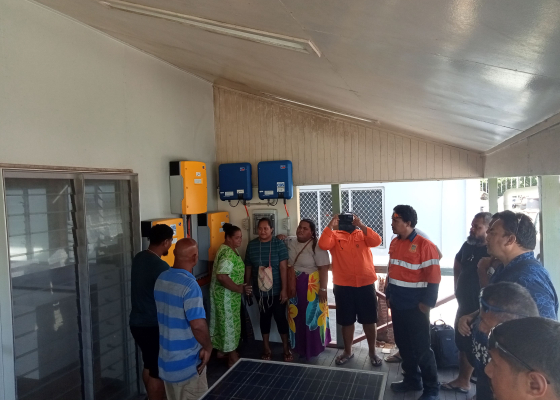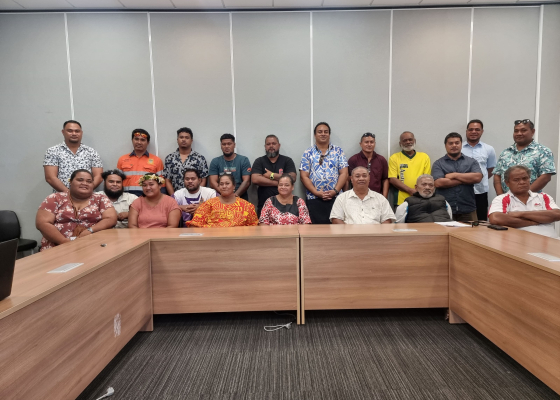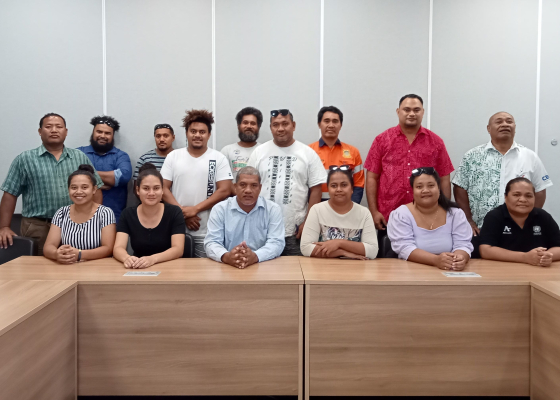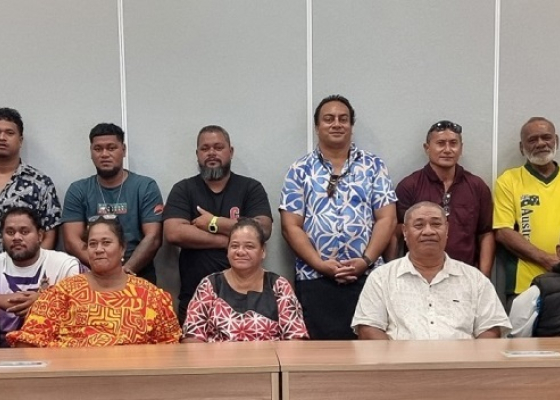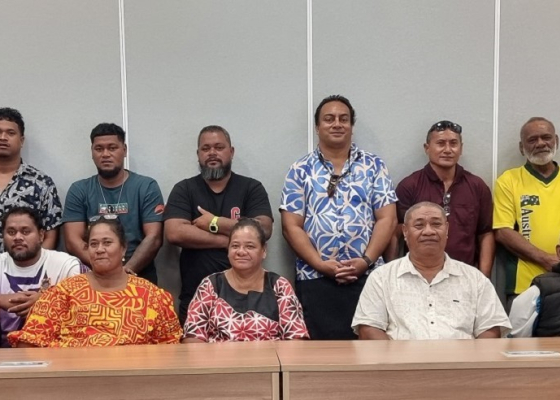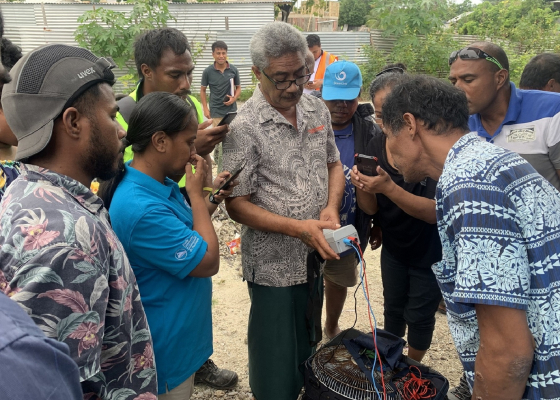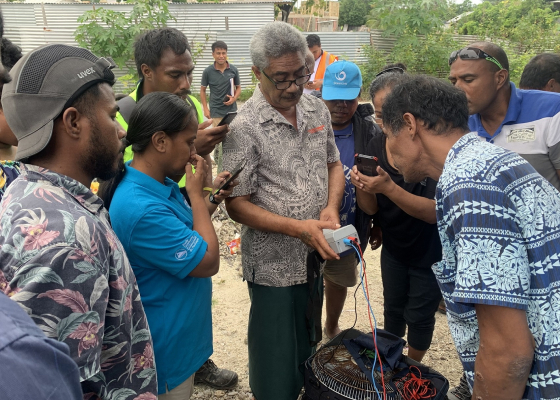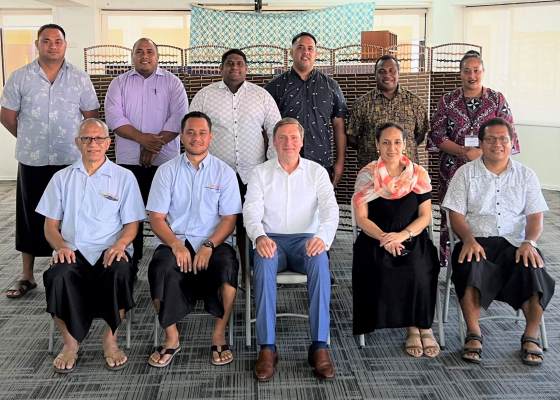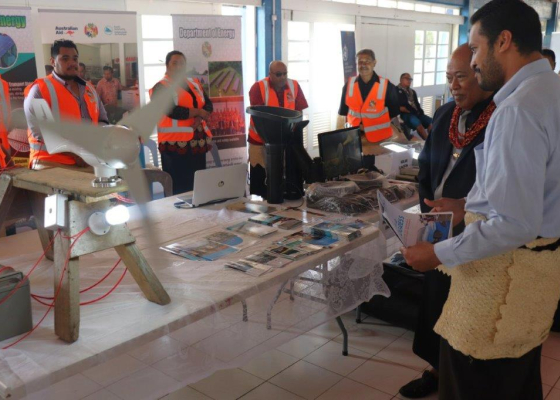National Green Energy Fund launches first projects in Vanuatu
The National Green Energy Fund (NGEF) has recently launched its first pilot projects after setting up in 2018 as an independent public entity to source funds to help the Vanuatu government achieve its energy targets.
Fishermen in Futuna now have a solar-powered refrigeration system to store their fish safely before sale, thanks to the first ever Vt30 million funding committed by the government.
The solar model is approved by the Department of Energy (DoE) and it comes in a form of loan/subsidy that the recipient has to pay at a reduced cost.
The system is installed at the Futuna Fish Market by an approved supplier. The DoE is implementing the project with the support of Cooperatives Department.
Fishing is a main economic activity on Futuna where planes and cargo ships rarely visit. Being one of the most isolated makes it hard to transport fish to urban markets.
Director of the DoE and Chairman of the NGEF Board, Anthony Garae, said the initiative is a solution to the logistic problem the tiny island is facing.
“This incentive aims to replace the use of dirty fossil fuels with cleaner and healthy energy and help achieve the government’s energy targets of getting 100% electrification from 100% renewable energy by 2030,” he said.
“Fossil fuels contributes to climate change. Through this initiative, we are trying to reduce our carbon impact and effects of climate by increasing energy efficient and phasing out fossil fuels.”
Apart from the Futuna project, the first ever Vt30 million raised by the NGEF is used to fund two other projects. Under the initiative, schools, public institutions and businesses can apply to obtain the funds.
A 2,249 watt solar panel system has been installed at Itiki Primary School in Tanna to provide affordable and efficient lighting as a basic need of any school, as part of the second project.
The system is powerful enough to run computers and laptops including photocopy machines. It is a hybrid system which means that it has a generator backup when there is no sunshine.
Similar to the first project, NGEF has offered a subsidy to Itiki school to help in acquiring the solar system. Deputy Principal of the School, Patrick Noel Tupun said the system will save the school money from using a generator.
Director Garae travel from Port Vila Futuna and Tanna for the launching events with the NGEF Fund Manager, Georgewin Garae, Finance Manager of the DoE, Helen Wilson, Karldon Sam from the Cooperatives Department, Global Green Growth Institute (GGGI) representative Paul Kaun and the First Political Adviser of the Ministry of Climate Change (MoCC).
After Itiki, the next project site is Nevam school on Malekula.
Upcoming Events
-
03/25/2026 to 03/26/2026
-
03/30/2026 to 04/03/2026
-
04/09/2026 to 04/10/2026
-
04/27/2026
-
04/27/2026 to 04/29/2026

